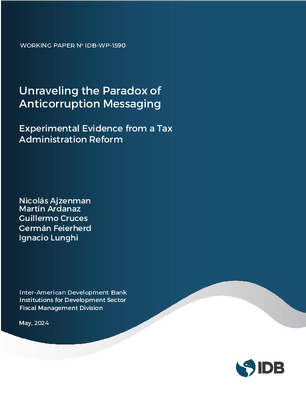Unraveling the Paradox of Anticorruption Messaging: Experimental Evidence from a Tax Administration Reform
Date
May 2024
Recent literature highlights a paradox in corruption prevention messaging: instead of reducing tolerance for corruption, such campaigns can inadvertently intensify it by priming the existence of corruption while failing to diminish citizens beliefs about government misbehavior. Building on Cheeseman and Peiffer (2022), which demonstrates that messages focused on combating corruption often backfire among individuals with preexisting negative perceptions of corruption, we posit that an effective strategy to mitigate backfiring involves shifting those pessimistic perceptions before delivering the corruption eradication messages. To test our hypothesis, we conducted a randomized survey experiment within the context of a major institutional reform to reduce tax agency corruption in Honduras. Results confirm the backfiring findings of previous literature, but also show that our approach effectively mitigates perceived corruption and diminishes the propensity for tax evasion, especially among skeptics.
Generative AI enabled





